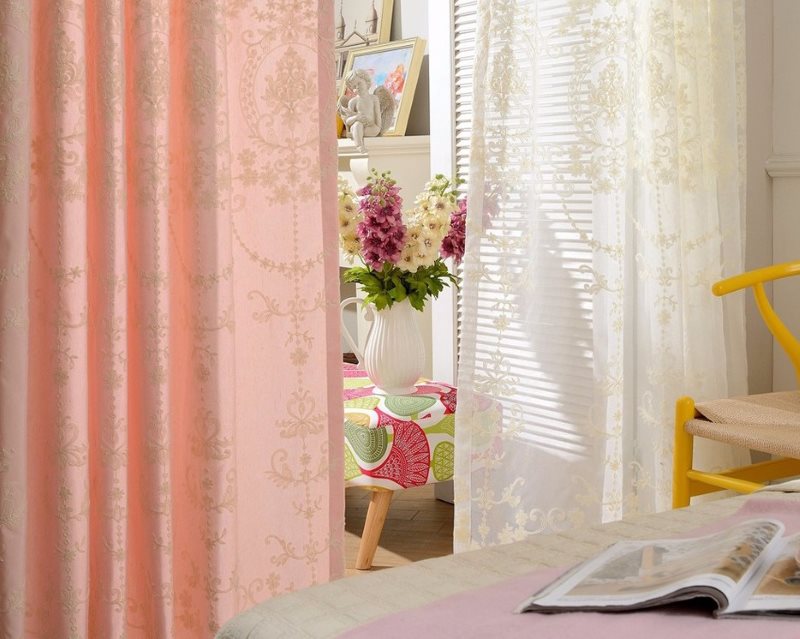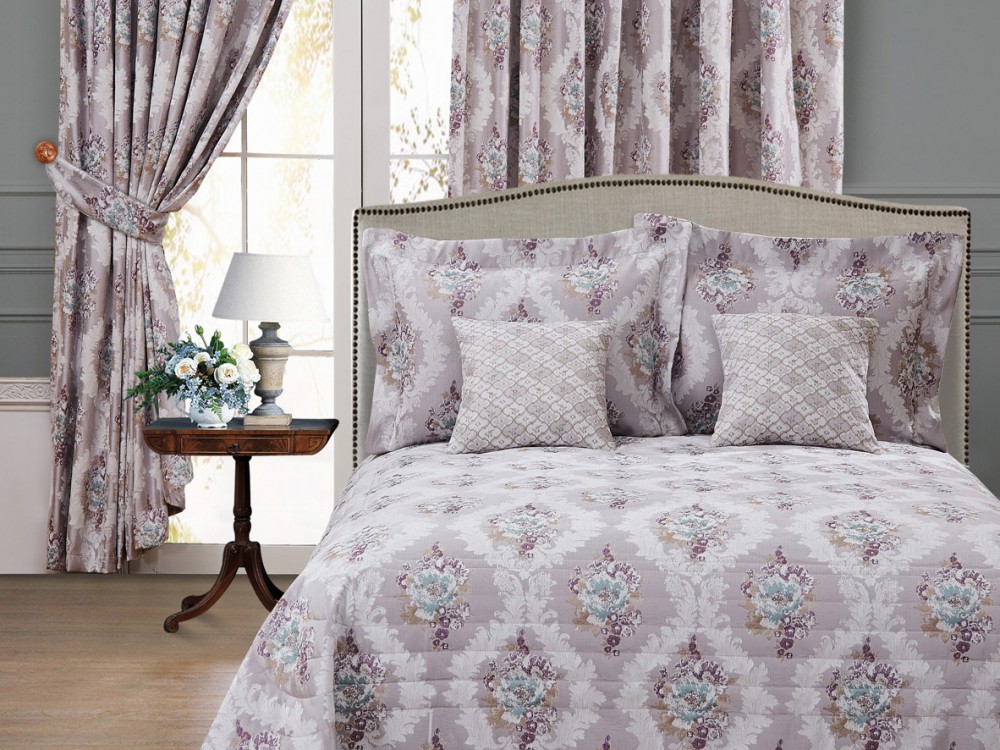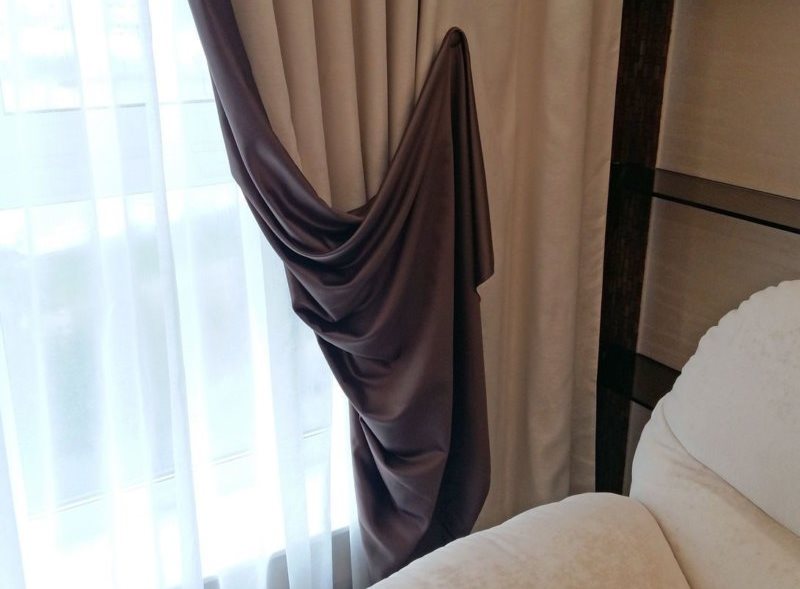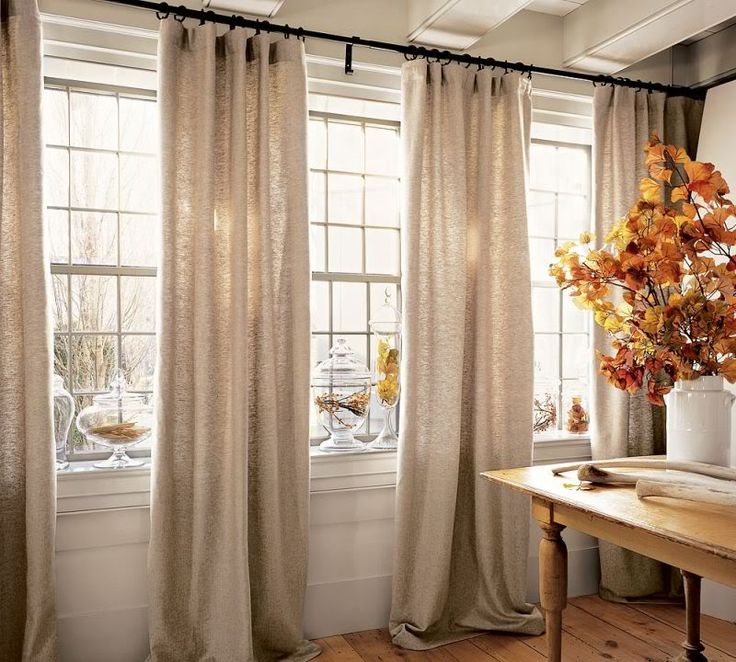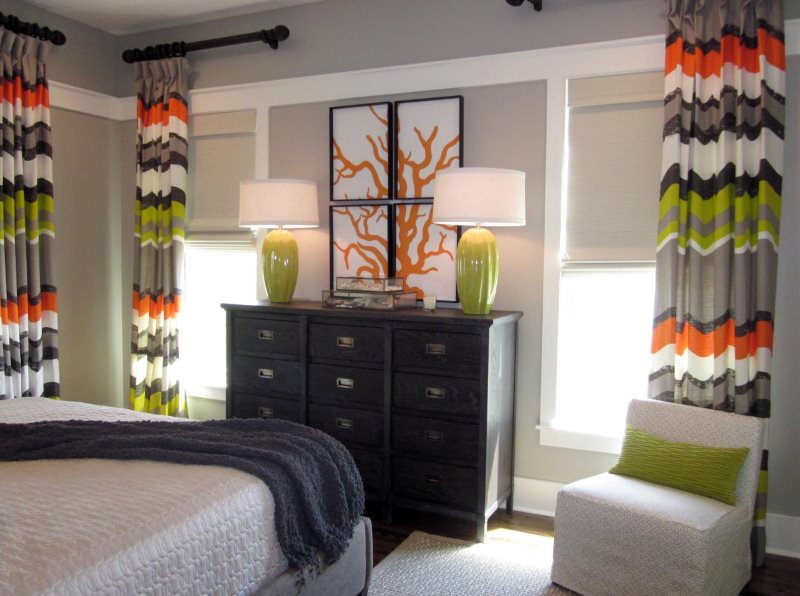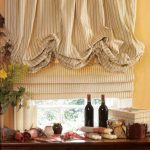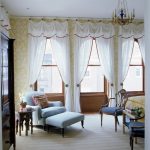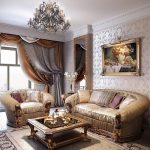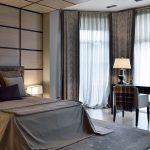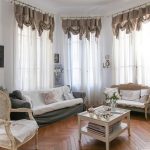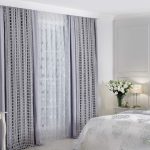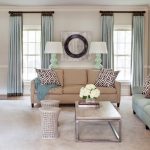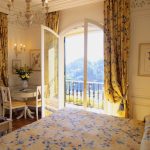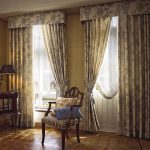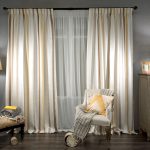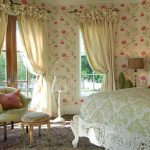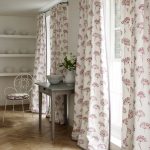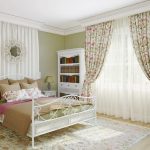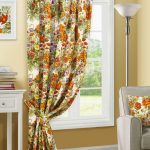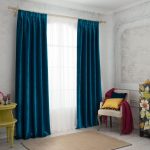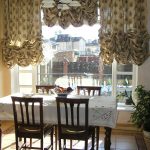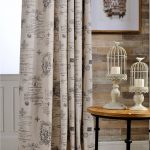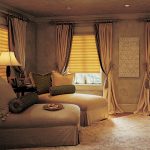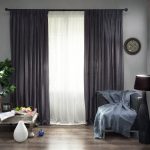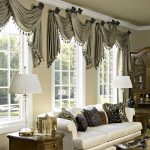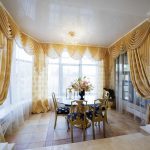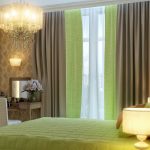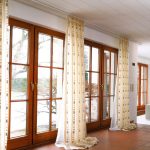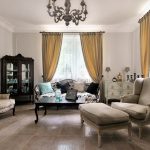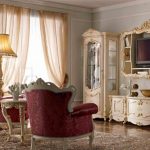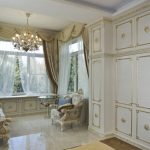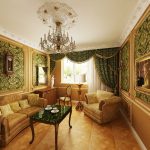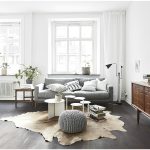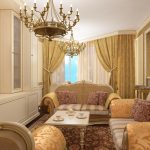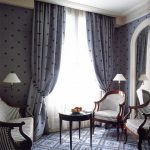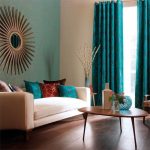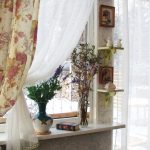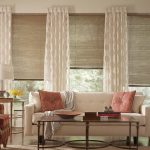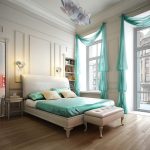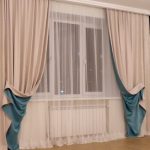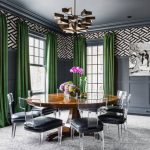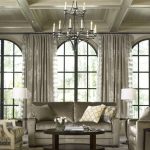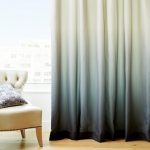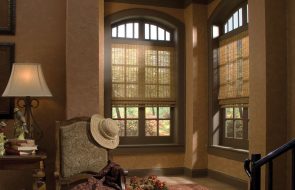What is the difference between curtains, drapes, drapes and draperies? Where did the tradition of windows being decorated with long pieces of fabric come from? The answers to these questions are in history. Where all the modern models of these very curtains, drapes and drapes have come from.
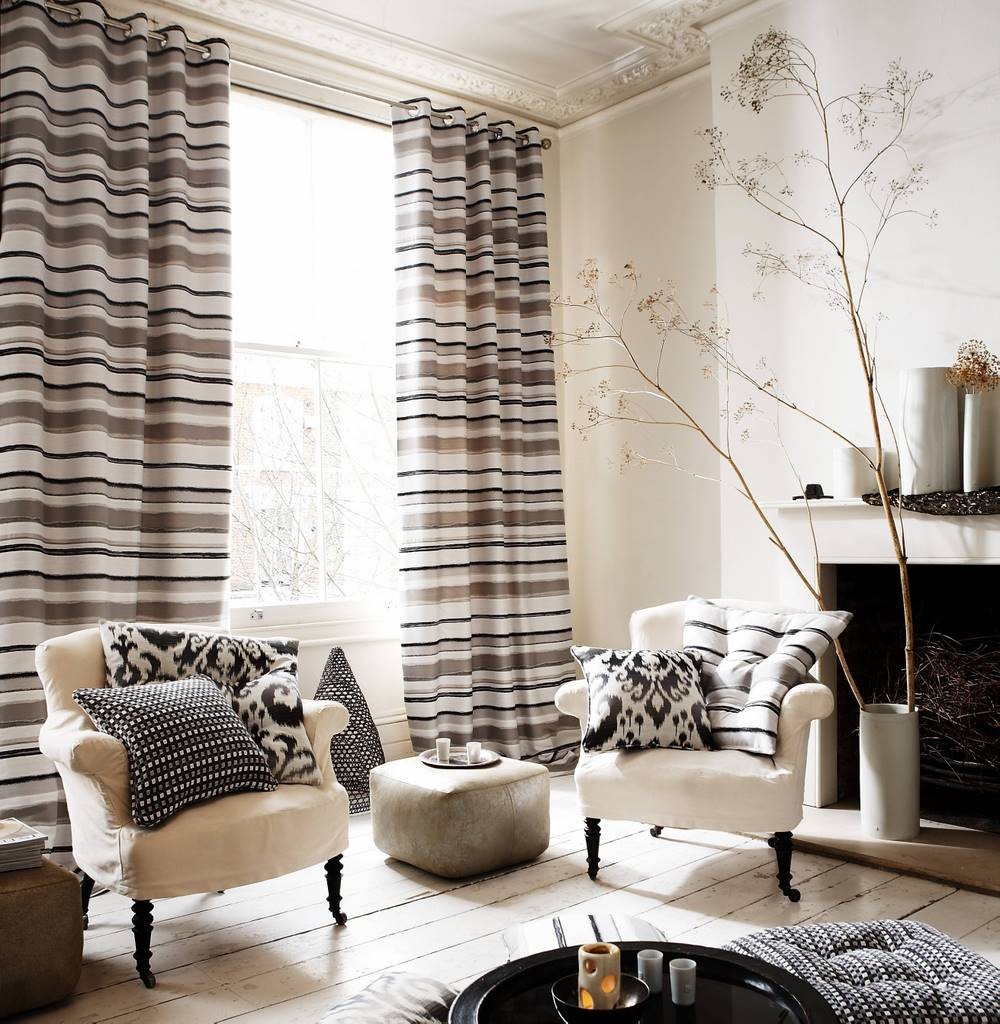
Content
- A Brief History of Different Models of Curtains
- Differences between curtains and drapes
- Differences between curtains and drapes
- Combination of curtains, drapes and drapes in modern interiors
- Recommendations for choosing curtains
- Video on how to choose curtains correctly
- Curtains in the interior – 50 photos
A Brief History of Different Models of Curtains
One of the ancestors of curtains can be called the invention of the first people. They hung the passages to their caves with the help of large and heavy skins of killed animals. They did this to show the advantage of the inhabitants of this cave over others or to hide from daylight - it is unknown. But the tradition of hanging holes in the wall with various materials remained with people.
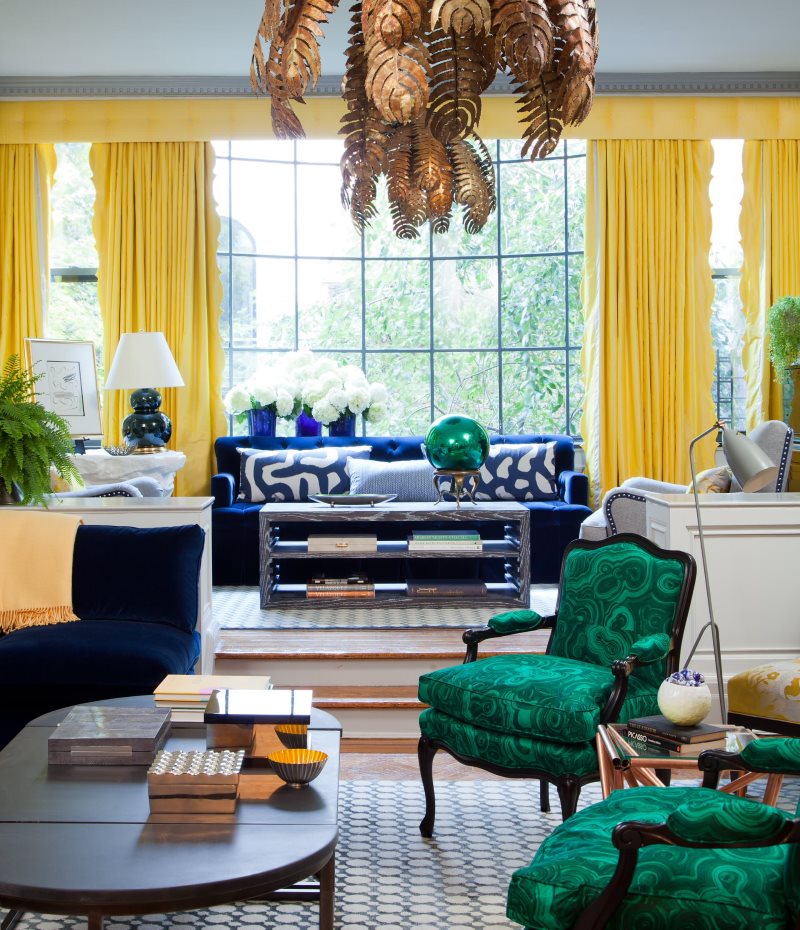
Depending on how fashion and technical equipment changed, the curtains on the windows changed as well. That is why today a modern person would rather go to a store and buy fabrics for the home that came to us from Byzantium, Greece or France, rather than go looking for more loot to cover a hole in the wall.
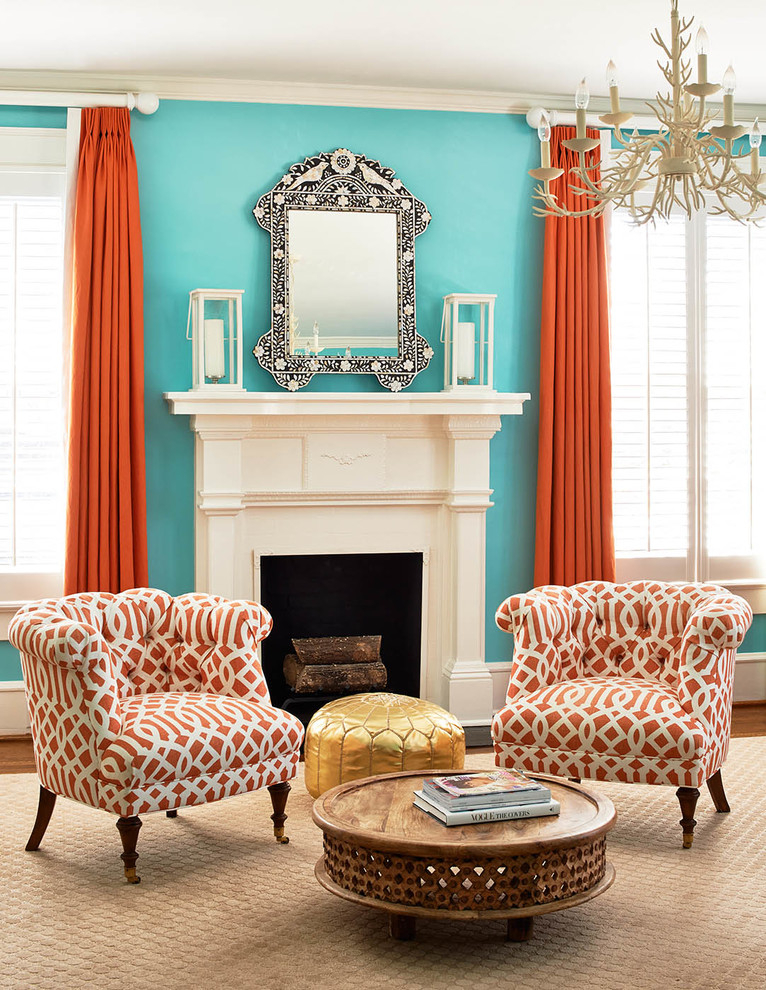
Curtains
The word "curtains" came from France during the period of the dominance of the Baroque culture in society - a tendency towards excesses. At that time, curtains were long and thick fabrics on which various ornaments and drawings were embroidered or painted. Now this technique is also used in modern interiors on jacquard curtains, but not so actively.
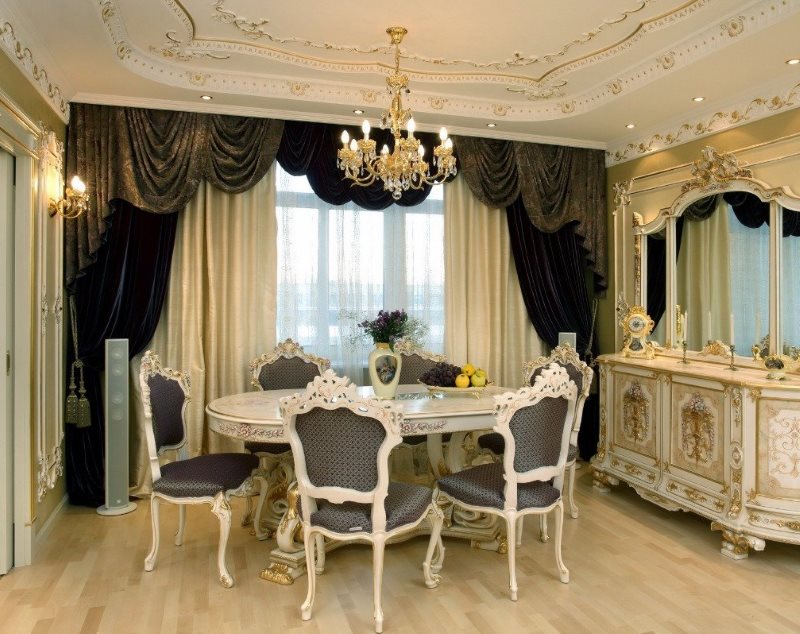
Curtains
Curtains are light, single-color curtains in the interior that practically do not hold back sunlight, but on the contrary, disperse it, unlike curtains. Due to their light structure, this type of curtains has become very popular in antique interiors. They seem to create a balance between the detailed and active environment of the room and the calm decor of the window.
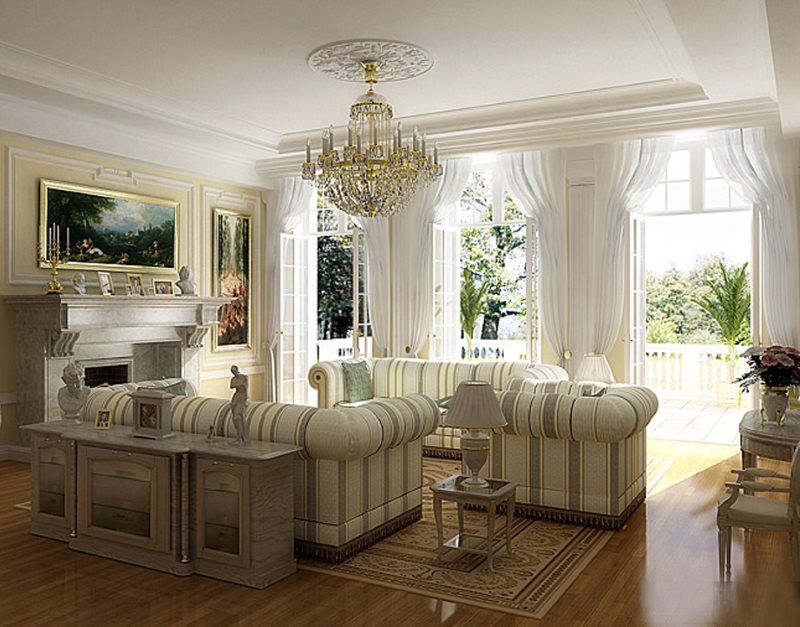
The opposite of the antique style is the new Scandinavian. It strives for simplicity and the creation of space. At the same time, a curtain is a fairly inexpensive version of curtains that can be installed in the hall, kitchen or bedroom. Because a thick catalog of colors and textures makes it possible to choose a suitable shade that would emphasize home comfort.
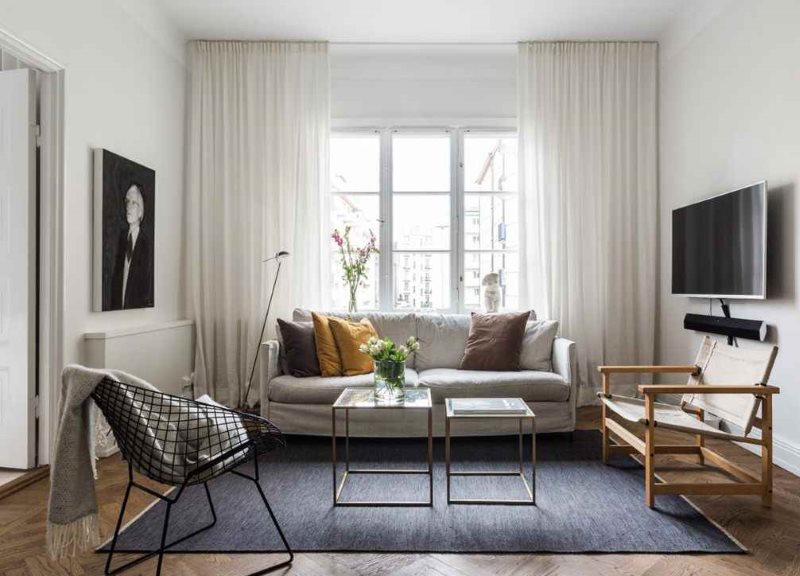
Curtains
Curtains are practically no different from blinds. Except for the fabric. If curtains are made mainly of heavy and dense materials, which are the main focus in the interior, then curtains are the opposite. They adapt to the existing furnishings of the house and can be presented in various materials: silk, velvet, linen, cotton, etc.
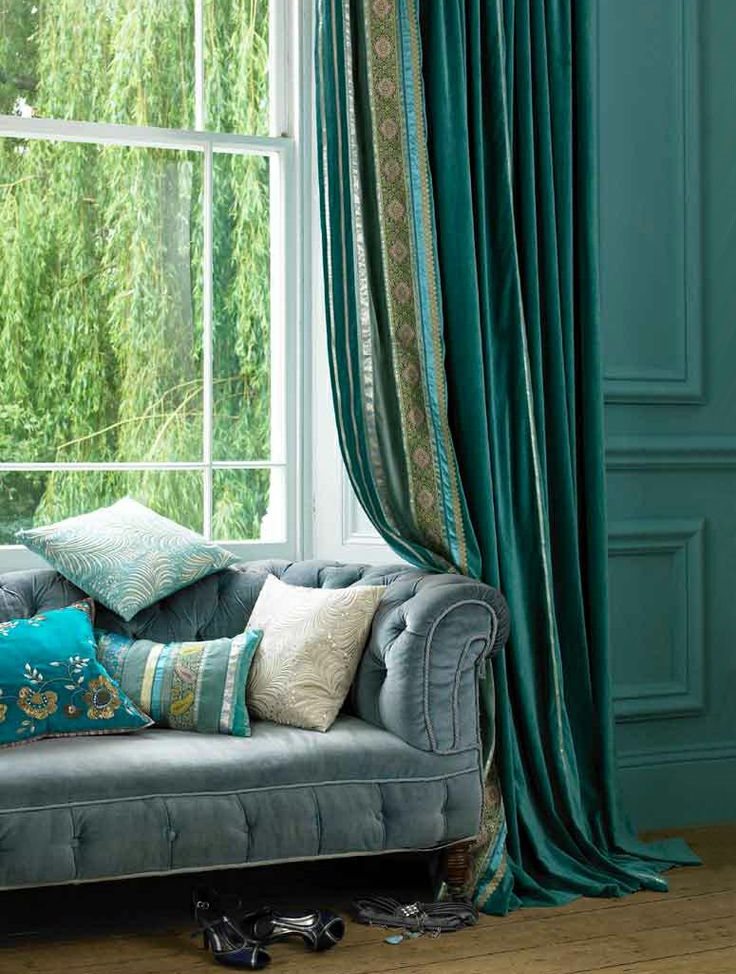
Curtains
Curtains are all other types of fabric that can be used to frame windows. Most often, they are decorative. They are presented as a short curtain for a kitchen window or even an ultra-thin curtain for framing a canopy for a bed. They have almost no functional value.
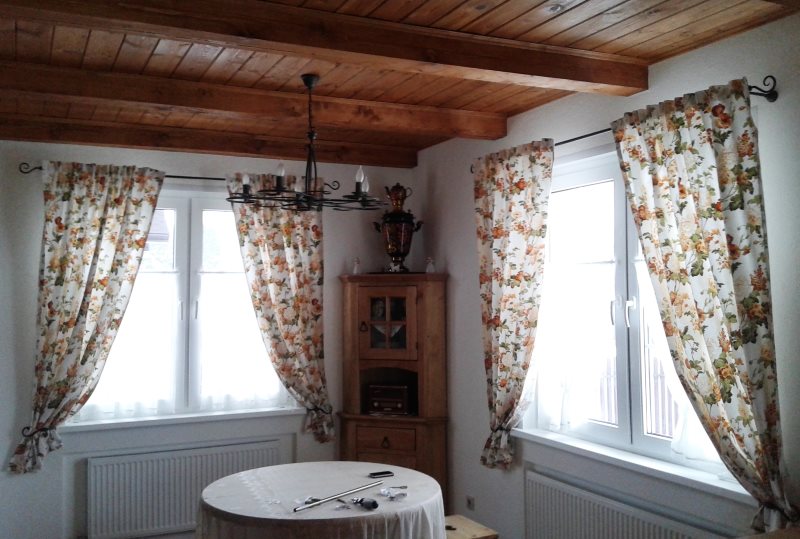
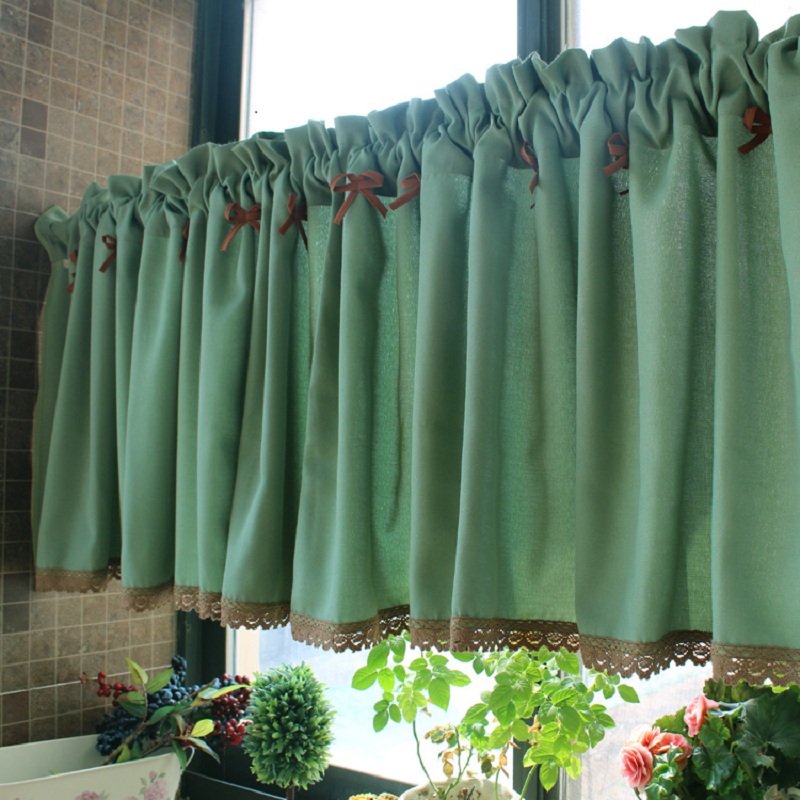
Differences between curtains and drapes
Based on history, we can say that curtains appeared much earlier than drapes. The latter became widespread when expensive Eastern fabrics, such as silk, began to be imported to Europe. Then the transition from one type of interior to another began. Royal bulky curtains with embroidery were replaced by thin flowing silk. And in order to somehow hold it from the wind, fabrics began to be gathered with special cords.

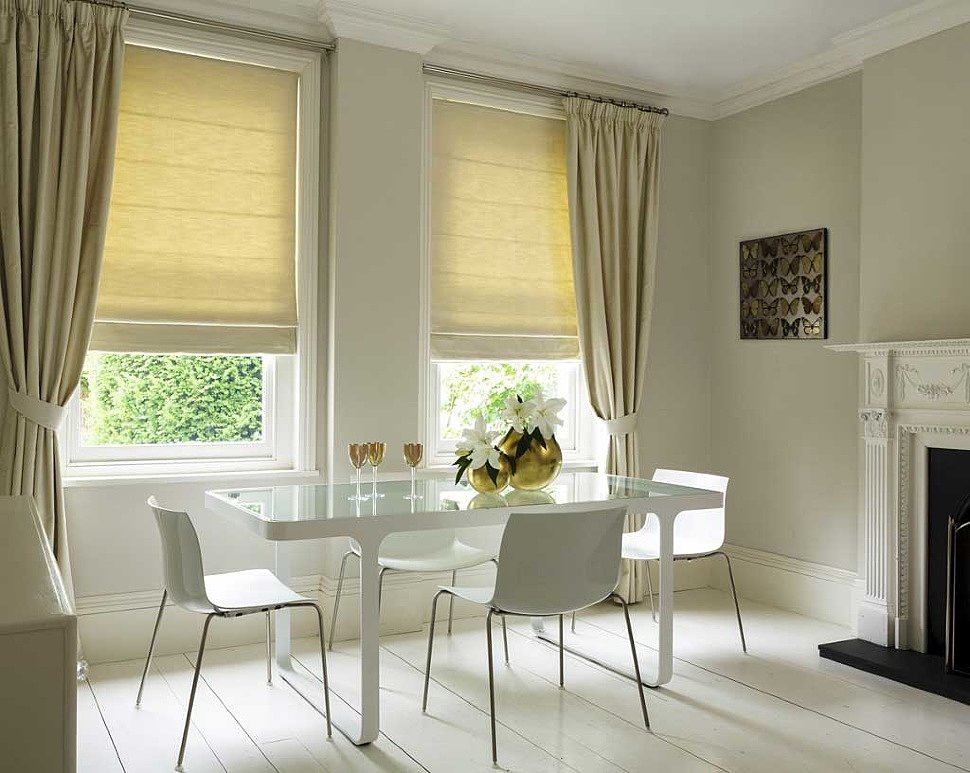
Curtains are not only silk, but also velvet, cotton and all other types of fabric that can be gathered on the sides. Also, a distinctive feature of curtains is that they can be supplemented with such elements as ruffles, lambrequins, eyelets, monograms, tassels, fringe to give the windows more solemnity and expensiveness.
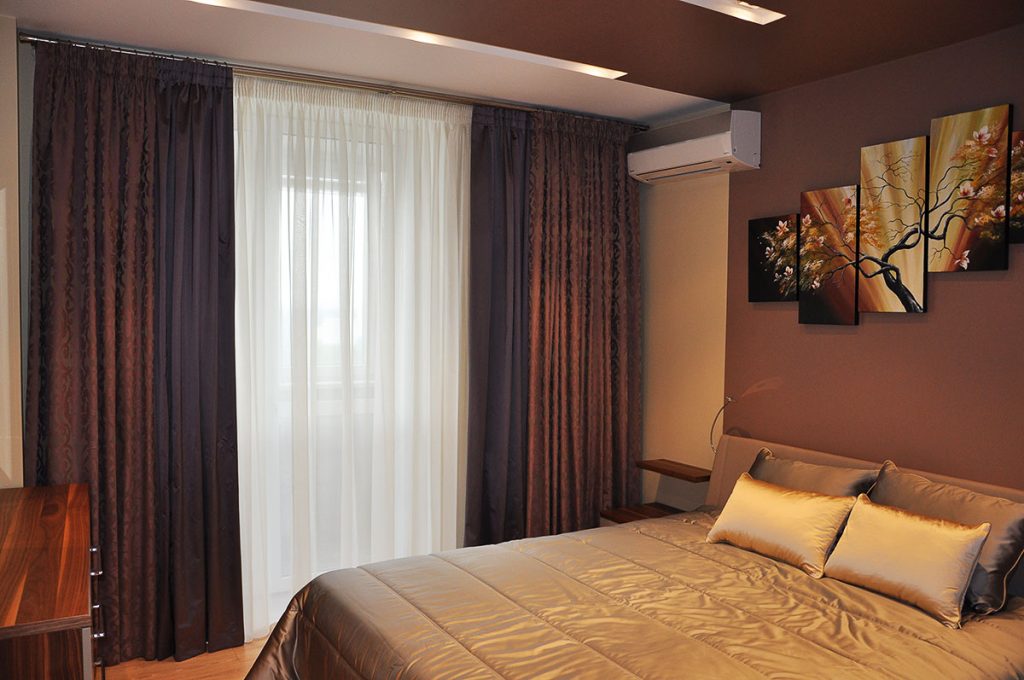
Differences between curtains and drapes
If curtains and drapes can still be confused with each other, then curtains are the element of window decoration that cannot be compared with the rest due to their variety of shapes. They can be long and short, very light and, on the contrary, heavy, transparent, with a pattern or without, made in the form of fabric or mesh.
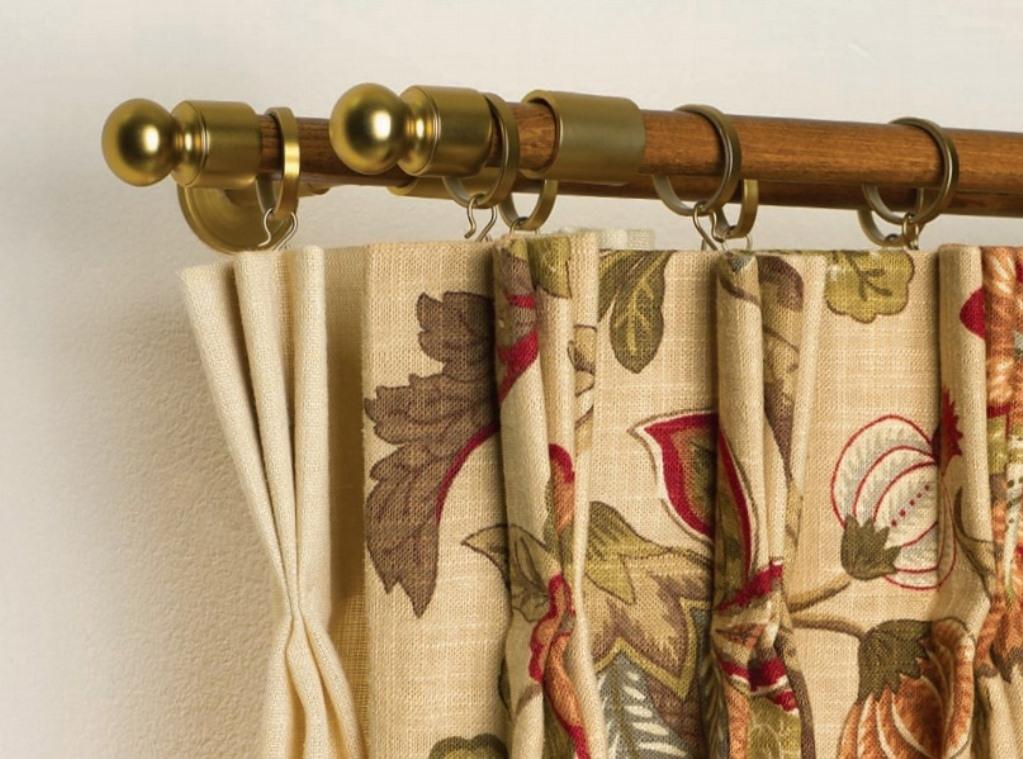
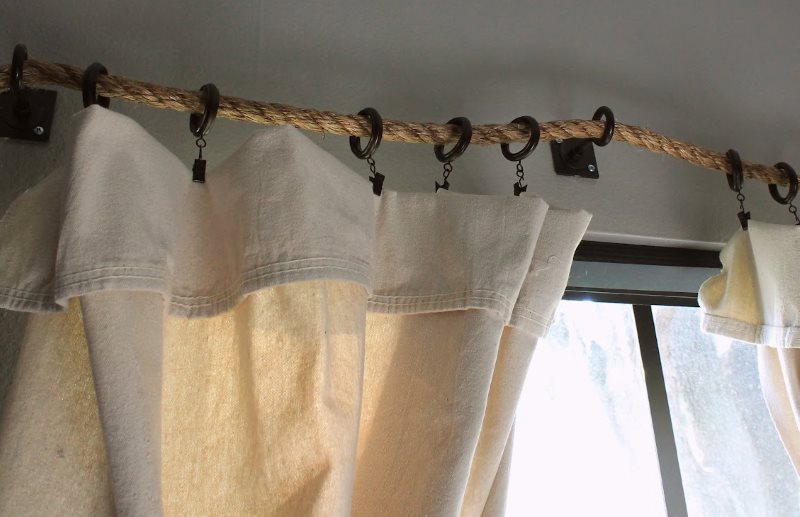
Also, if we take facts from history, then curtains can be compared with village curtains on windows. They were simple and made of natural materials, without unnecessary decorative elements. Such fabrics for convenience and economy were cut into two parts and hung as short curtains to cover windows from the sun's rays and prying eyes of strangers.
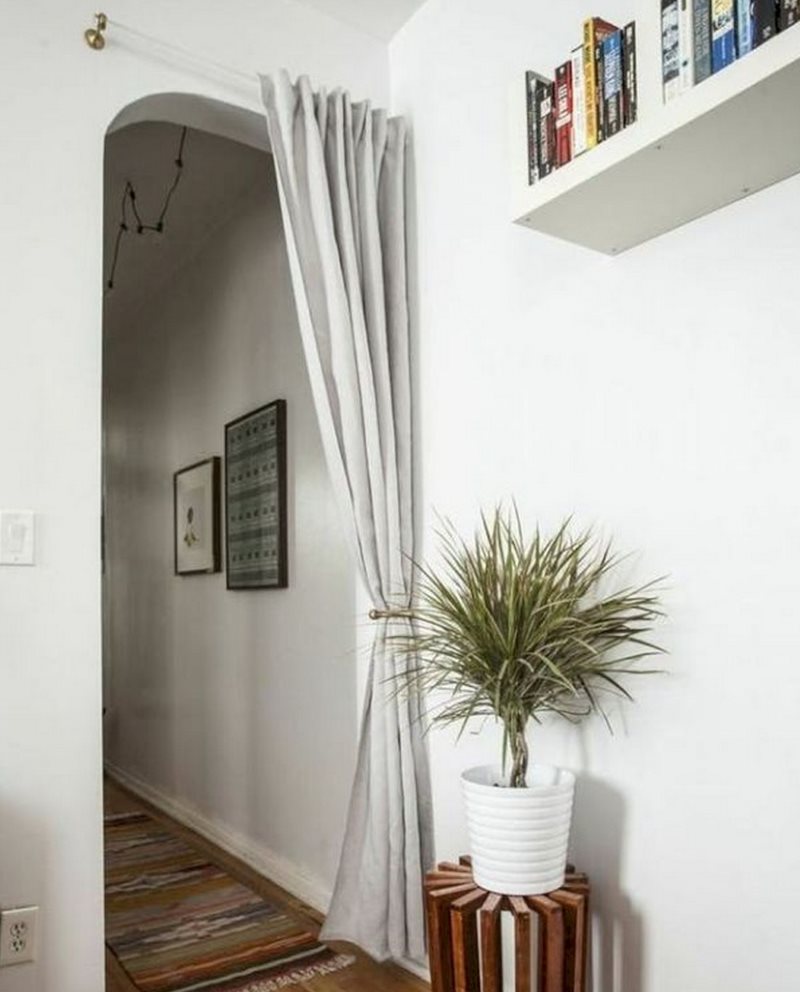
Combination of curtains, drapes and drapes in modern interiors
For a long time, curtains, drapes and draperies were used together: the more expensive fabric was on the windows, the richer the house was considered. Therefore, overly bright and bulky structures in the style of "excess" were the order of the day.
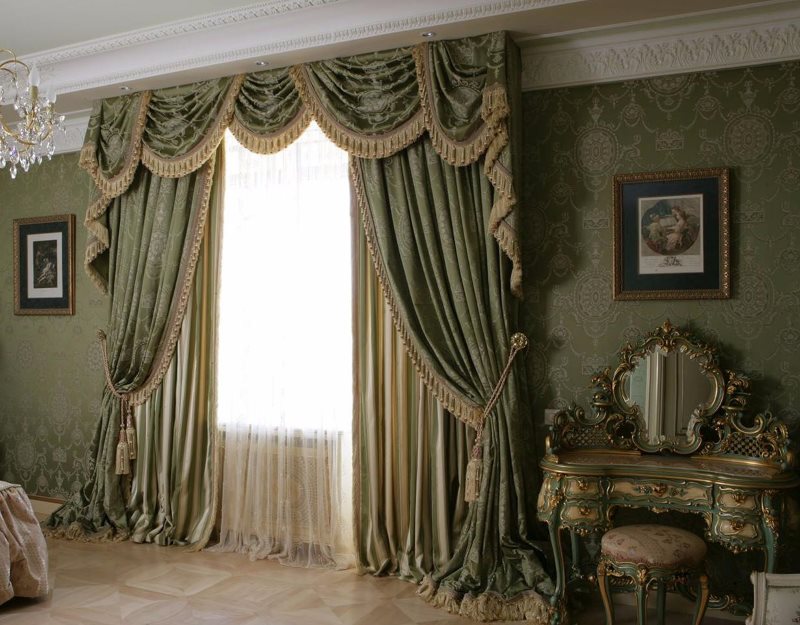
But time passed, preferences and tastes of people changed. And now from active baroque the public began to gravitate more towards more simplified forms. By removing curtains with eyelets it was possible to get calmer even curtains with a translucent curtain.
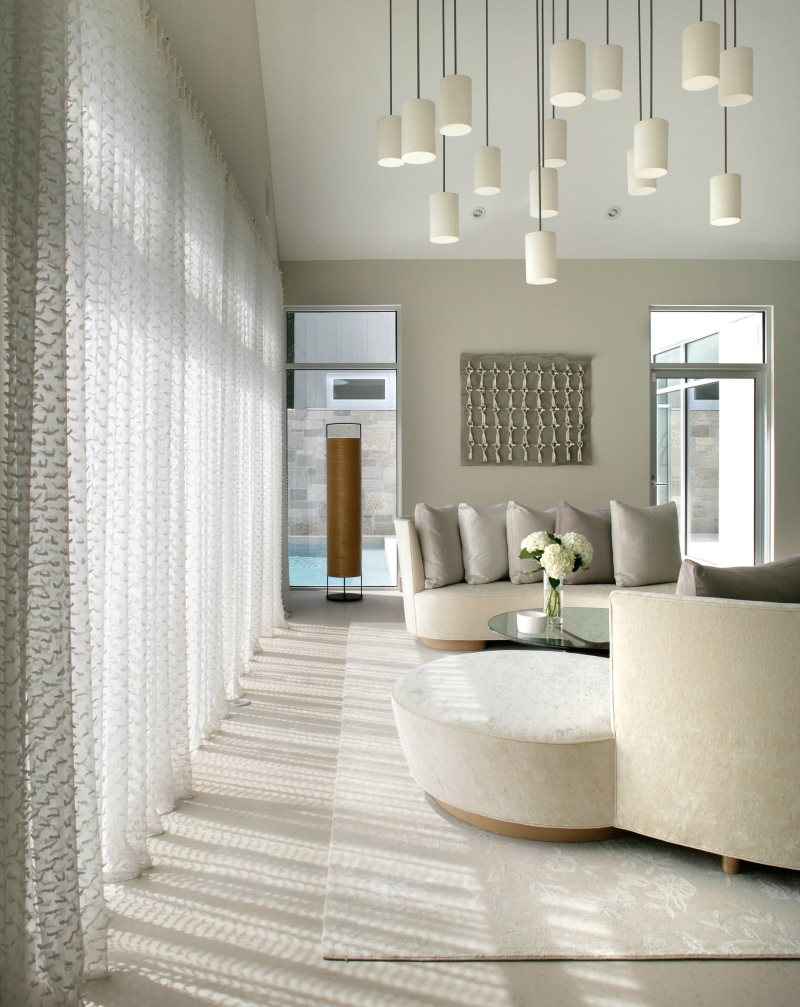
Or vice versa, if you leave the curtains but remove all other unnecessary elements, you can give the interior a completely different mood. It all depends on the room where the curtains will be located.
Nowadays, all three of these elements (curtain, blind and drape) can exist separately and not depend on each other. For example, short curtains in a retro cafe style are more suitable for the kitchen.
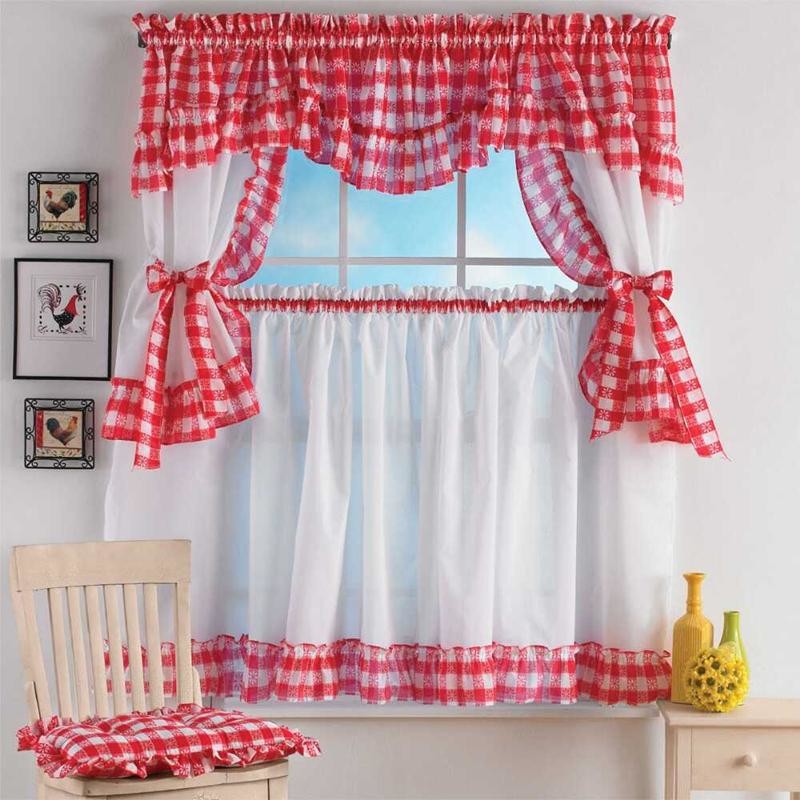
In the living room, it is better to leave the mood that the French once tried to create, namely: solemnity and wealth, which can be achieved with the help of curtains.
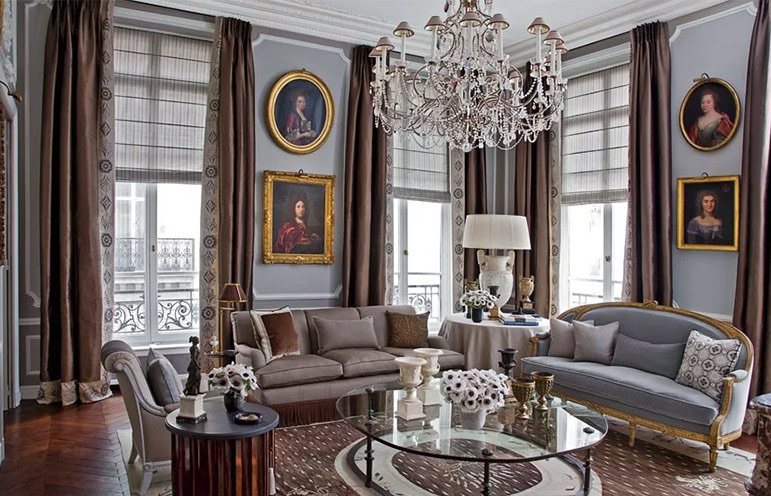
Curtains, as an independent element for window decoration, have undergone the greatest changes. There are many options on the manufacturers' market. Therefore, it will not be difficult to choose the most suitable curtains for the bedroom. The main thing is that they are as dense as possible and do not let in the morning sun rays.
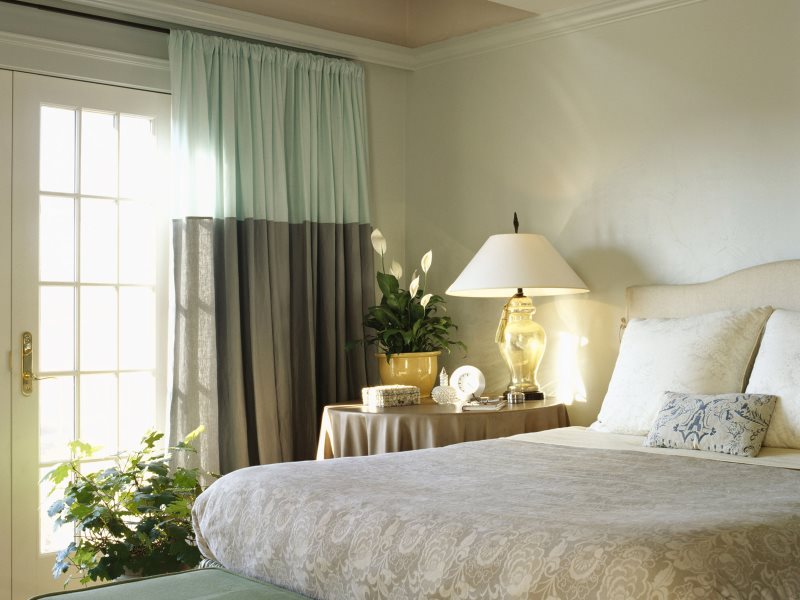
Recommendations for choosing curtains
- First of all, you need to pay attention to the quality of the fabric, and not to the design of the curtains.
- All fabrics consist of an unequal ratio of synthetic and natural threads. And depending on their quantity, the fabric can pass air well or poorly, hold its shape and collect dust. Therefore, it is first necessary to determine the functional characteristics of the fabric for windows in each room, and then select the design.
Translucent curtains expand the space and create an intricate visual effect - It is necessary to decide what function the curtains perform. They should attract attention or, on the contrary, shade the details in the interior.
- The texture and pattern of the window canvas should be related to interior elements. These could be pillows on the sofa, candlesticks, paintings, etc.
In the bedroom, curtains are usually linked to the textiles on the bed. - In different rooms, the fabric for curtains can show its color differently depending on the location of the windows and the brightness of the lighting. Therefore, it is recommended to take several curtains and look at them directly in the room, and then make a choice in favor of one of the options.
- The back of the curtain often fades in the sun due to the structure of the fabric, so it is better to use a lining for it.
A curtain with a contrasting lining looks beautiful - When buying textiles rather than ready-made curtains, it is important to correctly calculate the fabric consumption based on the width and length of the window.
- Depending on the nature of the fabric, the length of the curtain is determined. If the fabric is soft, it is better to make curtains, the lower part of which will lie on the floor. Thick curtains that hold their shape should be exactly to the floor and not a centimeter more.
The height of the walls in the room can be visually changed by using the length of the curtains. - Using a universal formula: if the interior is light with a minimum of decor, then it is better to use light curtains, a strict classical style is emphasized by the shine of the curtains, and a modern one requires even and strict forms.
- Curtains should have only one active element: color, pattern, cornice, etc.
The pattern on the curtains should echo some decorative element in the interior of the room.

